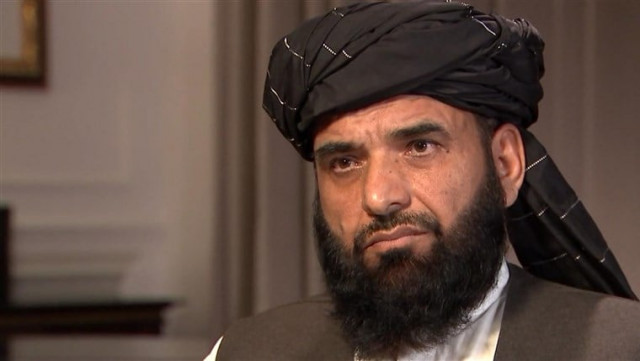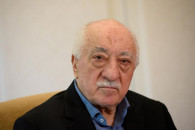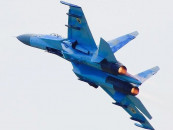Intra-Afghan dialogue only after prisoners’ release: Taliban
Taliban spokesperson says tactics to delay release of prisoners would have cascading effects on other commitments

Taliban political spokesman Suhail Shaheen. PHOTO: FILE
Under the landmark agreement signed on Saturday in the Qatari capital of Doha, 5,000 Taliban prisoners would be released in exchange for up to 1,000 government detainees by March 10. But Ghani said a day after the agreement signing that such a prisoner release “cannot be a prerequisite for talks”, but must be part of intra-Afghan negotiations.
In an exclusive interview with Anadolu Agency, Taliban political spokesman Suhail Shaheen said tactics to delay the release of prisoners would have cascading effects on other commitments.
“As per the agreement, both sides would release the prisoners by March 10. We are committed to our promise to release Afghan soldiers and police personnel. The US is obliged to free our 5,000 prisoners,” said Shaheen. Any delay in the release of prisoners would mean delaying other commitments that include the start of the intra-Afghan dialogue.
“The release of detainees is not in the domain of the US. Only the Afghan government has that authority,” Ghani said at a press conference in the capital Kabul on Sunday.
However, Shaheen clarified that the Taliban have signed the peace agreement with Washington and was expecting the US to implement its commitments.
“We heard from the media that Afghan authorities want to delay the release of prisoners which is part of our agreement. But I want to make it clear that intra-Afghan dialogue would take place only after the release of prisoners,” he said.
India factor
To a question regarding India, where apprehensions are being raised about the peace deal, Shaheen said the Taliban have no issue with any country and want to work with all to bring sustainable peace and development in Afghanistan.
“We have no issue with any country, neither we want to have an issue with anyone, we want to establish good relations with all countries and work with them together in the reconstruction process of Afghanistan after the withdrawal of foreign forces.”
However, he emphasised that those who did not welcome the peace agreement have only exposed themselves that they do not want peace in Afghanistan. “We urge them to reconsider their policy,” the Taliban spokesman added.
Shaheen described the peace agreement a step forward toward peace in Afghanistan and said the whole Afghan nation is happy on this landmark achievement.
“We are very happy having successfully concluded the peace agreement. As per the agreement the US and NATO forces would leave the country within 14 months. The occupation of Afghanistan will end.”
The landmark peace deal between the Washington and Taliban signed in Doha on Saturday has laid out a timetable for a complete withdrawal of foreign troops from Afghanistan. “We always supported peaceful ways to end the long conflict and find a durable solution to the Afghan issue. We will now follow our commitment that we made in the peace agreement,” he said.
Ball in the US court
To a question regarding US commitment and implementation of their part of the agreement, Shaheen said it is now up to Washington if they want restoration of peace in Afghanistan or return to conflict.
“Our Mujahideen are still in their barracks. This [peace agreement] is the way to bring peace in Afghanistan. If anyone wants to use force, then we also have the right to defend our country.”
Asked about US President Donald Trump’s statement about his expected meeting with the Taliban leaders, Shaheen said they haven’t received any invitation from the US for such a meeting. “So far, we have not received any invitation. When we receive the invitation, then we will decide who will meet President Trump.”
The Taliban spokesperson said the venue of an intra-Afghan dialogue is still under discussion. Media reports earlier suggested that Norway has offered to host intra-Afghan talks in capital Oslo. “We have not decided yet. Today, we are gathering to discuss the possible venue,” he said.
No guarantors
According to the Taliban, 27 countries had sent their representatives to the agreement-signing ceremony held in Doha on Saturday. “There is no guarantor in the peace agreement. But there were witnesses like Russia, China, Turkey, and 27 other countries,” said Shaheen, when asked about guarantors.
The US and the Taliban had several round of talks in Doha since they started formal negotiations 18 months back. President Trump’s point-man Zalmay Khalilzad led the US negotiating team, while the Taliban team headed by their chief negotiator Sher Mohammad Abbas Stanekzai.
Recalling the progress of talks, Shaheen said initially the atmosphere during the meetings used to be tense, as both sides were not familiar with each other, but “soon the atmosphere turned friendly”. At times definition of words and their translation from Pashto to English took several hours. Both sides had agreed that the language of communication will be English and Pashto. Therefore, many translators were employed to translate statements and conversations accurately.
The Taliban spokesman praised the role played by Qatar and Pakistan during the tough negotiations in Doha.
“I appreciate the role of Qatar, which not only provided us space for a political office but also welcomed our families and they facilitated the whole process of negotiation,” Shaheen said. “We also acknowledge that the role played by Pakistan was very positive and important to towards peace in Afghanistan.”



















COMMENTS
Comments are moderated and generally will be posted if they are on-topic and not abusive.
For more information, please see our Comments FAQ